About this section
Listed below are profiles of several of our current PhD candidates. These profile sections will be updated annually. This is an opportunity to get to know some of our current PhD candidates and learn a little about their research interests. Scroll down the page or click on a name above to go directly to that profile.
Michael Rose
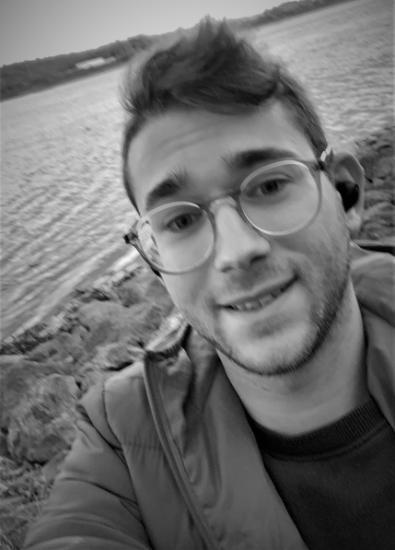
Mikey is a PhD researcher in the disciplines of Sociology and Politics at University College Cork, specialising in a study of displacement and Rohingya collective agency through a Historical Materialist lens. This work focuses on displacement, statelessness, and resistance, through Deleuzeguattarian concepts such as relative deterritorialisation and through a method of ethological situational analysis.
With a background in International Politics from the University of Aberystwyth, Mikey is working to examine the systemic factors conditioning the displacement of Rohingya people and their potential in collectively organising on a local and transnational basis. This research contributes to both academic discourse and policy considerations, aiming to address the underlying causes of displacement and advocate for the struggle of marginalised populations.
Developed through engagement with both scholarly and activist communities, this research is intended to be shared with the aim of fostering informed discussions and to support the advocacy efforts of displaced communities.
Jody Ponce
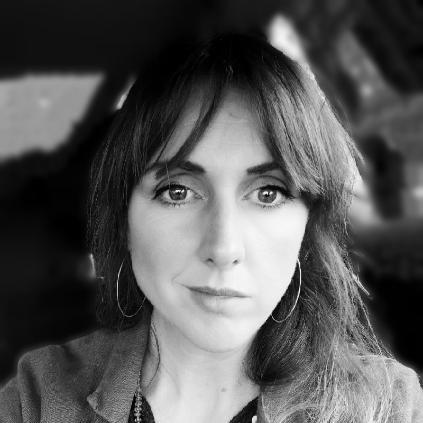
Jody Moore-Ponce is a PhD researcher in the Sociology Department in University College Cork. Her research focuses on polarization and the authority of lived experience in social justice activism and wider society. Her work has been published in the European Journal of Social Theory and in Transforming Society published by Bristol University press. She holds a part-time lecturer and tutor of Sociology position in University College Cork.
Click here to link to the article 'Confessional critiques: Parrhesia and avowal in contemporary anti-racist discourse' from the European Journal of Social Theory.
Click here to link to the article 'When antiracist politics becomes confessional critique' from Transforming Society.
Pooja Priya
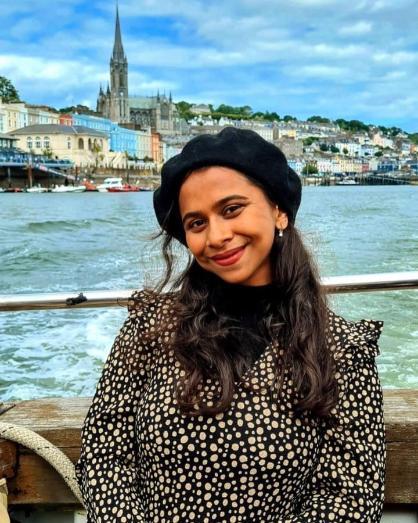
Pooja Priya is currently a doctoral researcher in the Department of Sociology at University College Cork, Ireland. She is the recipient of the Global Challenges PhD Scholarship, within the Department of Sociology at UCC, Ireland. Her research interest lies in studying South-South migration and looking into the place-making and integration journeys of migrants. Her PhD dissertation is focused on studying the place-making experiences of Nigerian and Congolese students in New Delhi, India. Adopting an ethnographic approach, her dissertation looks into revealing the journeys of these African migrants and exploring how their subjective experiences are different based on the intersections in their identities.
She was born in India where she pursued her Bachelor’s and Master’s in Sociology from Lady Shri Ram College and Delhi School of Economics, University of Delhi. She has also worked closely in the role of research assistant at the Centre for Africa, Latin America and the UN at the MP-IDSA, a think-tank affiliated with the Ministry of External Affairs in India. Here, she was assisting research associates in writing policy papers focused on India- Ethiopia and India-Senegal lines of credit that had been exchanged between the two countries. This provided her with a policy-based knowledge of India-Africa diplomatic relations and led to the development of her current research interest. She is also involved with civil society organizations such as Recruit Refugees Ireland and the Congolese Association of Ireland, wherein she regularly participates in events related to migration.
Darwesh Obeid
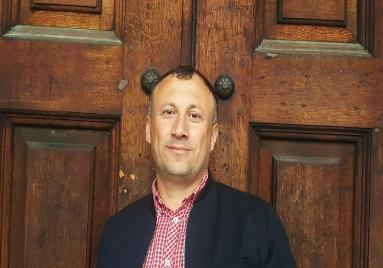
Darwesh Obeid is a PhD student in the Department of Sociology and Criminology at University College Cork. His research interests include Genocide Studies, Ethnic Conflict, Nationalism, and International Law. His research project is titled ‘’The Aftermath of Anfal Campaign, Survivors, Memories and Trauma’’.
The research project aims to explore the aftermath and residual impacts on the survivors of the Kurdish genocide, known as the Anfal campaign, which was waged against the Iraqi Kurds in the late 1980s. This paper focuses on exploring the impacts on survivors in the context of cultural and collective memory. The study is located within sociological and anthropological studies on genocide and cultural and collective memory and trauma.
The study is based on an overall qualitative methodology drawing on in-depth semi-structured interviews with a diverse range of survivors. The research paper locates the critical understanding of the Anfal campaign in which an estimated 182.000 persons were killed, and another 1.5 million people displaced within an understanding of the geopolitical power struggles post World War 1 in particular and more recently in the context of geopolitical power struggles in 1979-1980 in Iraq in particular.
Supervisors: Dr Amin Sharifi Isaloo and Dr Tracey Skillington
Swara Shariff Karim
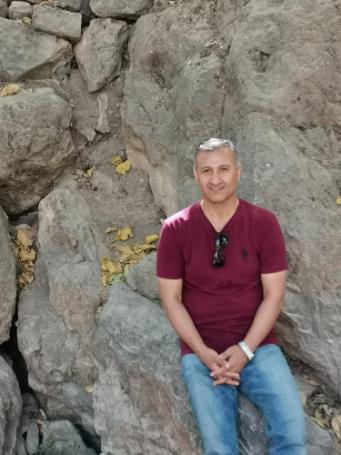
Swara Shariff Karim is a current PhD candidate at the Department of Sociology and Criminology. Swara has a Bachelor's degree in Sociology from the University of Mosul/Iraq (1991). Following this he earned a Diploma in Sport Injury Therapy from CSN College (2012). Then a BA Sociology at UCC (2018) and an MA in Sociology of Development and Globalisation (2019).
Swara's PhD title is The Lived Experience of Kurdish people in Cork, and Dublin /Ireland from a Biographical Sociological perspective.
The study uses the qualitative methodology drawing on in-depth semi-structured interviews; this empirical research analyses new dynamics which emerge post-naturalisation in terms of statelessness and recognition, there is a conspicuous absence of understanding or knowledge on how this group are post-naturalisation. What is life like for them and their families once they are safe and settled in Ireland? There is an assumption that naturalisation is the endpoint of suffering for refugees, and the beginning of happiness or contentment in the development of their lives, given the safety and protections afforded to them by being citizens of Ireland. This empirical research suggests that actually ‘it is not that simple’ and naturalisation is, in fact, the starting point at which other deeply embedded issues of statelessness and recognition emerge and blossom.
Supervisors: Professor Maggie O'Neil and Dr Amin Sharifi Isaloo
Zita O'Sullivan
"I was born in Prague and thanks to plenty of family travel during my childhood I developed a real passion for different cultures, people and societies. This led me to pursue my first degree at the University of Aberdeen, where I graduated with first class honours in International Relations-Sociology in 2014. I subsequently enrolled in an international joint masters programme in Cultural Sociology, during which I studied at University of Zadar, University of Graz, University of Trento and lastly, at University College Cork. Since 2016 I have been working full time at UCC, supporting the internationalisation ambitions of the university through various roles. I commenced my part-time PhD studies at UCC at the start of 2024. My academic interests lie in sociology of religion, and especially in the role religion plays in mitigating and / or fueling hostility and xenophobic sentiments. My research is particularly focused on the religious and socio-political developments of recent years in Slovakia and Ireland."
Ute Krenzer
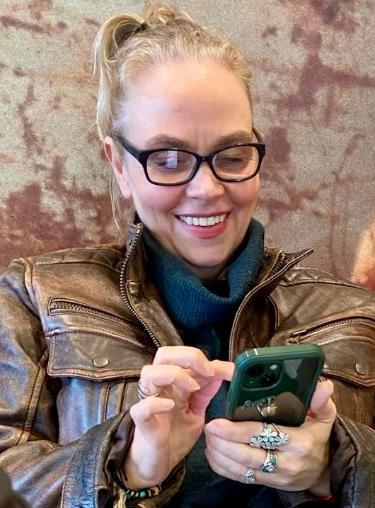
Bio
I started my first-ever university education as a mature student after nearly 30 years in the Publishing and IT sectors. In 2023, I completed my Bachelor of Arts in Criminology with a First-Class Honours degree. As an undergraduate, I was awarded the ‘Quercus College Scholarship’, College of Arts, Celtic Studies and Social Sciences and the ‘Classical Social Theory Essay Prize 2022’ by the Department of Sociology & Criminology. My BA research dissertation was a comparative study looking at housing provision after prison in Hamburg and Cork entitled – ‘Rehabilitative Imaginary or a Right to Re-integration?’ My dissertation was awarded a first-class honours and I have started to publish in international peer-reviewed journals on this and related themes. Since then, I have additionally been awarded the PhD Excellence Scholarship from the Graduate School in the College of Arts, Celtic Studies and Social Sciences at University College Cork.
Proposal
I propose an ethnographic case study research model that engages clients of voluntary sector organisations in two jurisdictions (Cork, Ireland and Schleswig-Holstein, Germany) to document/analyse challenges in navigating social reintegration post-release.
In consultation with service users of the two voluntary sector organisations respectively, the research will make available to potential participants a variety of research tools in an attempt to move away from researching about people to researching with people ensuring that persons can engage in the research using methods that they feel comfortable using.
Department of Sociology & Criminology
Socheolaíocht & Coireolaíocht
Contact us
Askive, Donovan's Road, University College Cork, Cork, Ireland, T12 DT02

